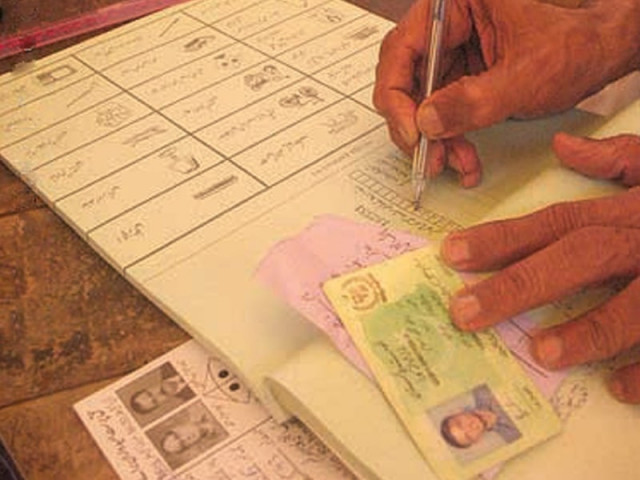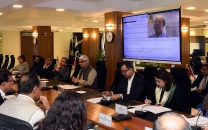ECP, NADRA vow to do better after bogus voters embarrass
Total amount of people disenfranchised may exceed 10 million, says FAFEN official.

ECP, NADRA vow to do better after bogus voters embarrass
For the next general elections, both ECP and NADRA have vowed to do better. But even these efforts may not be enough to ensure a transparently clean election.
Among the measures proposed by the ECP was the use of water-marked ballots. This, says ECP Secretary Ishtiak Ahmed Khan, would be similar to markings present on currency notes that allow counterfeit notes to be detected. He also said that ballot papers would be marked with magnetised ink, and the thumb impression left by the ink could then be corroborated with the NADRA database.
Even before the polls, the ECP is working on a door-to-door voter verification campaign that is using NADRA resources, including 800 data acquisition units and over 200 mobile registration vans. Despite these measures, however, there are many issues that could corrupt the elections which have not been addressed.
An official of the Free and Fair Election Network (Fafen), who requested anonymity because the group is still working on its reports on voter registration and fraud, the biggest problem with the process is the under-counting of voters.
He says that many voters will be unable to register either because their houses are overlooked in the door-to-door verification or because they are not in the NADRA’s system. The total amount of people disenfranchised, he says, may exceed 10 million.
He says that the process is also likely to be corrupted once politicians enter the picture. “Informal agreements often exist between political candidates to refuse to allow women to vote. When everyone agrees to this the Election Commission usually just stays quiet,” he adds.
The most problematic area, according to him, are the Federally Administered Tribal Areas, where the ECP and NADRA presence is weakest, causing them to under-register voters and because polling agents are reluctant to insist that women vote.
An official at the ECP also said that for the process to be successful, both the ECP and NADRA would have to stand up to substantial political pressure. As the polls near, politicians often visit their offices and give them a list of names that must be included in the voters list. If officials succumb to this pressure, the entire verification process would be corrupted, he says.
Published in The Express Tribune, November 29th, 2011.



















COMMENTS
Comments are moderated and generally will be posted if they are on-topic and not abusive.
For more information, please see our Comments FAQ